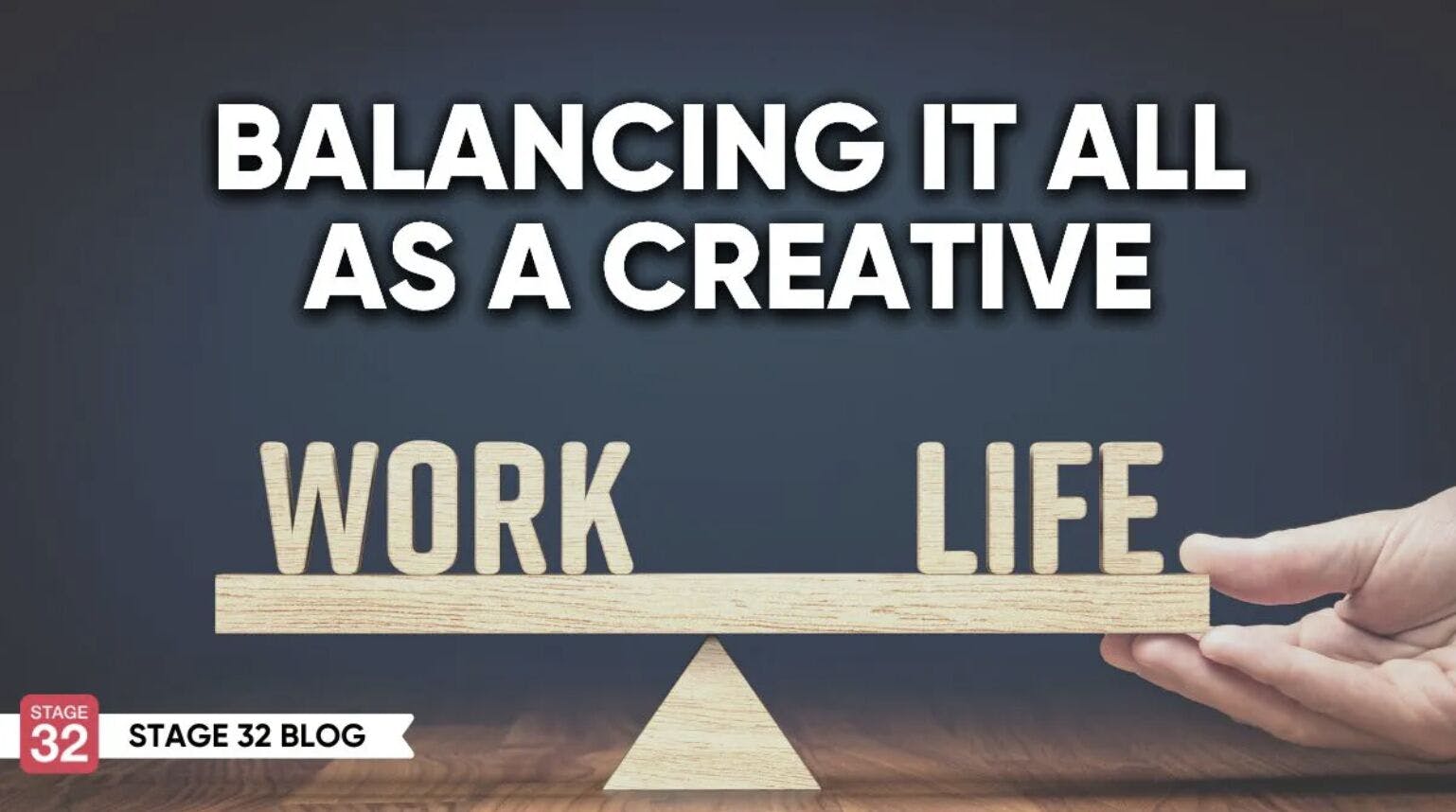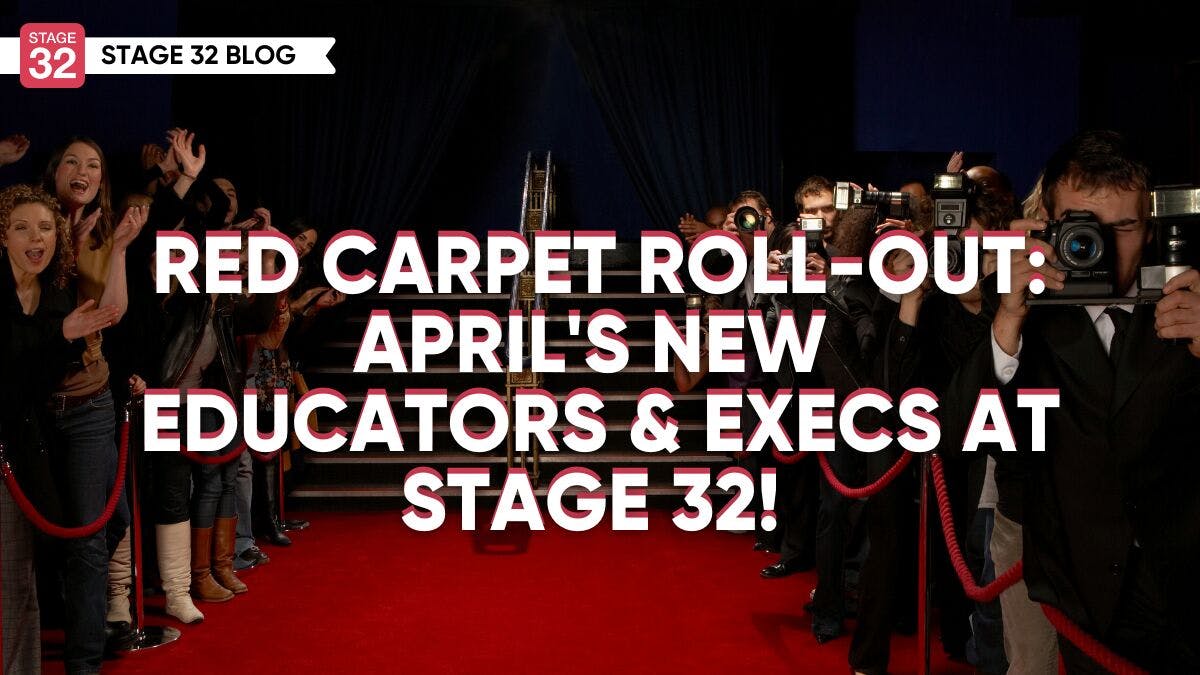Directors Manifesto: Make Your Film Stellar from Set to Screen

Directors Manifesto: Make Your Film Stellar from Set to Screen

Happy New Year Stage 32 family. As many of you are writers, I am here to share my insights and tips on directing. Some of you might venture into directing your own content or running your own show for the studios one day, it is good to remember some of these things I’m about to share with you.
Now, a disclaimer: I have directed a couple of short films in my lifetime, and these are just my own opinions based on personal experience. There is more than one way to skin the cat when it comes to directing. I rather skin the cat then save the cat. (writers will get my reference) Being a DP also allows me to work closely with other directors and observe how they work behind the scenes. With that said let’s dive right into my first point.
1. Make Swift and Decisive Decisions
When you are on set, it’s easy to get overwhelmed, everyone will be asking you questions left and right. What costume should the actors wear? Where will you stage the scene? Not to mention the myriad of things the actors will ask you as you direct their performances. Let’s face it, sometimes things will go sideways on set. Having a flexible mindset will help you in the long run, being calm and collected is another important skill to develop. Nobody likes to see you panic or stressed out; which brings me to the second point.

2. Do your Preproduction Ahead of Time
If you have never directed then please keep this in mind, do all your homework and necessary prep work at home whether a storyboard or a shot list. A good director would have created a ‘road map’ for his entire film before he even steps foot on set. No one likes an unprepared director who can’t make up his mind. The casts and crew depend on you, ‘you are the general, you need to lead the army’. Time is precious on set - if you come prepared half the battle is already won.
3. Directors Playbook
When directing a scene, decide how each scene leads into the next scene. Structure your scene accordingly with your 1st AD. The easiest way to do this is by breaking down the script one page at a time. Working out the narrative structure gives you a framework to work within the time frame. Some key questions include: do you want to shoot your scenes in chronological order? or shoot it out of order? That is why it is crucial to plan this out with your 1st AD on how best to make your day and get it in the can. Communication is key so everyone is on the same page. You may have brilliant ideas but if you can’t articulate it in words then your crew will not be able to help you execute your vision.
4. The Role of the Cinematographer
Your DP is your right-hand man. You need to be able to communicate your vision so that he/she can translate your vision into a visual image. Your job is to direct the actors to best serve the story. Do not be afraid to ask for help from your crew. Teamwork is key here, filmmaking is not a solo endeavor; it is a collaboration. Finding the right DP for your project is like a marriage. Find the wrong DP and it may end in a bad divorce, your film will suffer as a result. So take your time and find someone who shares the same ideas and passion as you.

5. The Approach
How do you approach your script/story? The first thing I do is figure out the mood and tone of the film, is it dark or moody? Is it a comedy/drama...etc. Whatever genre it is, it should give you a good starting point. Build a look book and create a document of visual references so that you can share it with your DP and your production designer. Anything from Pinterest, web pictures, magazines, films, artwork. The more detail you have the better your crew will understand your vision.
Once you have assembled your look and feel of the story then you need to figure out the ‘film language’. If you’re not a technical director then discuss this with your DP. Things to consider are- what camera to use? Will it be shot with modern or vintage lenses? Anamorphic or spherical? Is your story a period piece or a horror piece…etc? if it’s a modern story then you will want a clean look. Modern lenses will lend itself nicely to the film if that is the case.
6. Visual Aesthetic
This is the ‘language’ to tell your story. For example, if your story is action-driven; your camera language should be handheld, shaky, slow motion...etc. If your piece is more drama based, you may want it to be steady, locked on a tripod. Slow push in on actors faces...etc. During pre-production, you will discuss this with your DP about the ‘technical blueprint’ of your film. Whether is it dark and moody or lit with natural light. When you breakdown your script, each scene will dictate the visual language. For example, a high angle shot may convey a dominant character whereas a low angle shot may suggest a weaker/submissive character. Some scenes will of course call for a mixture. It depends on what you are trying to tell the audience.
7. Speaking the Actor’s Lingo
The actor’s performance will make or break your film. Directing actors is like a balancing act. You are part therapist part politician. You need to be sensitive and assertive at the same time. When directing really emotional scenes, your actors will place their trust in you, it is up to you to direct and guide them along to bring out the best performance. Therefore building trust is one of the key steps in directing actors. Rehearsing with actors before the shoot day will do wonders and help build deeper trust.

8. The Importance of Casting
While it may seem tempting to cast that rambunctious brunette or vivacious blonde, it is important to find actors who have a wide ‘range’ in their performance. It is easier to direct actors who have a range especially if the scene calls for improvisation. Sometimes scenes get changed at the last minute, it happens on big-budget films too not just indies. Finding actors who are flexible will help you tremendously. A good casting director is worth its weight in gold. I understand that budget sometimes may not permit hiring a casting director, so the next few tips I share will help you in picking the right person for the right role.
9. Take an Acting Class or Workshop
I find that taking an acting class or doing scene studies with actors will help give you an idea as to how actors behave or prepare. It also gives you an idea of what it feels like to be in front of the camera as nowadays directors direct behind a monitor. I like to be near the camera when I direct so I can see every little nuance of the performance up close. This will further cement the trust you have with your actors as you are subconsciously telling them that you are there with them, ready to catch them if they fall.
10. Fostering a Collaborative Environment & Set
A good director should make the actor feel safe. When you allow for creative freedom, something magical happens. Let me explain, actors may interpret a scene differently than your original idea, sometimes it will be better than what you originally envisioned it to be, sometimes it will not be what you have in mind but the key takeaway here is to allow the process to happen organically. Actors need room to express, it is your job to usher them to the playground, if they get out of line, bring them back in. Tone down their performance if it's too over the top. I find this to be true when directing actors who have a theater background/classically trained vs actors who are film and television trained.

11. The Art of Giving Good Directions
Actors are not like ‘volume knobs’. Let me explain a bad direction. Can you be a little less emotional? Can you get angrier? Can you be sadder? Can you show more excitement? A little less of this, a little more of that, get the picture now? I do not like to give a generic direction or straight up tell them what to do. I prefer to let actors interpret a scene, let them bring their special sauce to the scene, and from there you can adjust the performance accordingly.
12. Character Breakdown
When you rehearse with actors, these are the type of questions that will most likely come up. What is the character’s back story? What are the character’s goals? What are their needs/desires? Are there any obstacles preventing them from getting what they want? What is their relationship with this person? Why are they behaving this way…etc.
13. Techniques on directing actors
If you have done your homework with rehearsals during pre-production then you should enjoy every moment of directing when you come on set. It is a pretty surreal feeling having the actors play out the scene. The words come alive, it doesn’t get any better than this! When giving actors a direction, give them hints to spark their imagination.
For example, let’s say the scene is about an affair, you can use words like ‘imagine’ that you found out your spouse cheated on you, how will you react at that moment? Use words like ‘how about this’ or ‘would you be open to trying this’. I like to ask them questions about their character while also encouraging them to take risks. Directing actors is not rocket science, it is about feeding them an idea so they can simmer on it.
Portraying a character is an exploration to arrive at a truth, whatever truth the actor finds will be expressed in an emotion, the camera will then capture body language, every thought process and subtle nuance will be revealed for you to see. It is up to you as a director to either accept that version of the truth or not. If you are not convinced you can go for another take or if you believe in his/her convictions then you can yell cut and move on.

14. Working with the Pros
If you are one of the lucky directors who get to work with A-list actors; congratulations I hate you! lol (jokes). There are many instances where you work with actors whose IMDb is up the wazoo compare to yours. In scenarios like this, it is best not to get in their way. Let them show you how they interpret the scene and their characters. Really experienced actors usually do not require a lot of direction, instead, explore the story with them, let them improvise, they might just surprise you and elevate the performance. This is the essence of teamwork, passionate human beings working together to serve the story. You bring your A-game they bring their A-game. Badabing badaboom.
Final words
For new writers/directors venturing into directing for the first time, it is important ‘NOT to over-direct’ your actors. Over directing can make a performance seem too rigid, it is better to feed an idea to your actors, let them play off it. Sometimes their idea may be better than yours. The same thing can be said for giving too much information. Audiences these days are sophisticated, ‘show it, not tell it’ applies here.
It is important to develop your own identity as a director, follow your instinct, take creative risks. Put your faith in your collaborators, which includes every member of your cast and crew and above all put your own stamp on your films. As Pablo Picasso is infamously quoted, "Good artist copy, great artist steal". However, if you must "steal", then remember to put your own stamp on it, make it unique and give the audience something fresh.
About the Author

Shawn Yeo
Cinematographer, Director
I'm an independent filmmaker and cinematographer, i love every aspect of film production and being on set! I constantly find myself learning new things everyday as the industry evolves; story is king and i am here to serve your vision so please do not hesitate to reach out! I love to share my ex...










